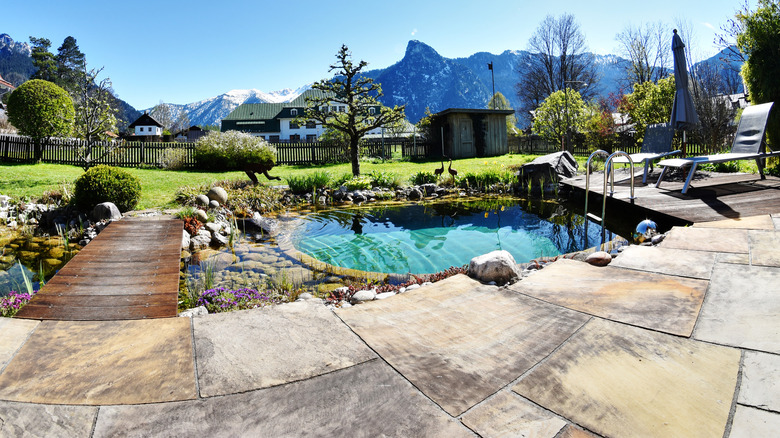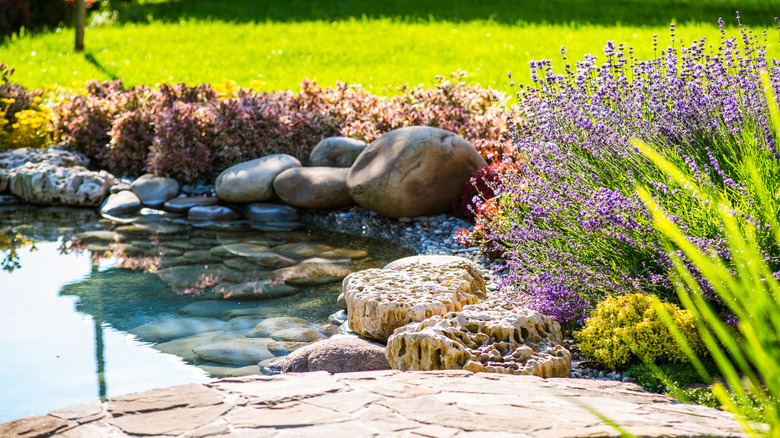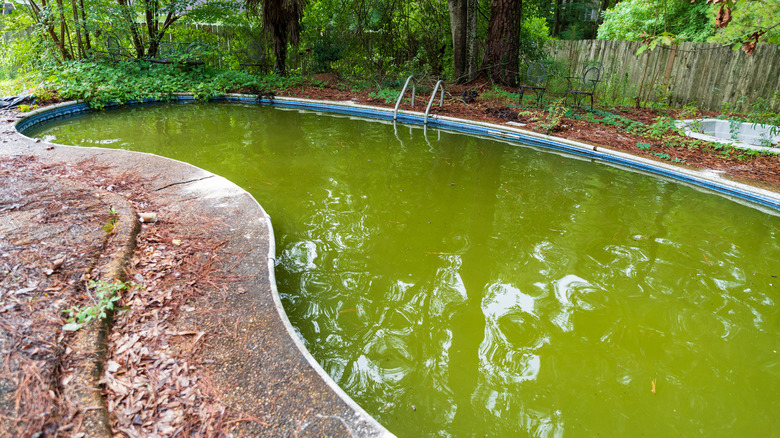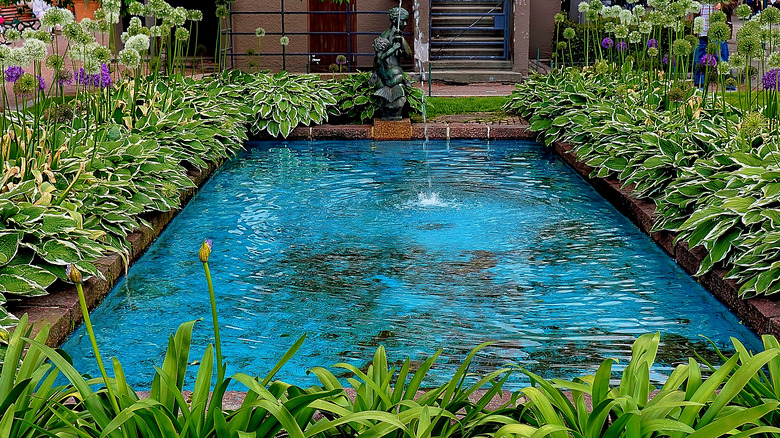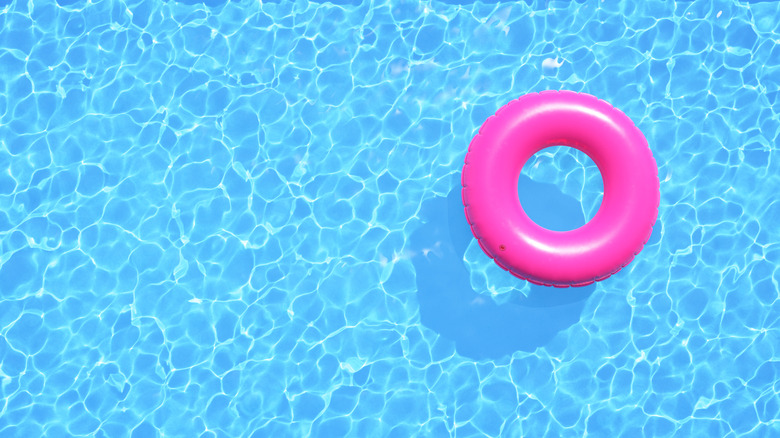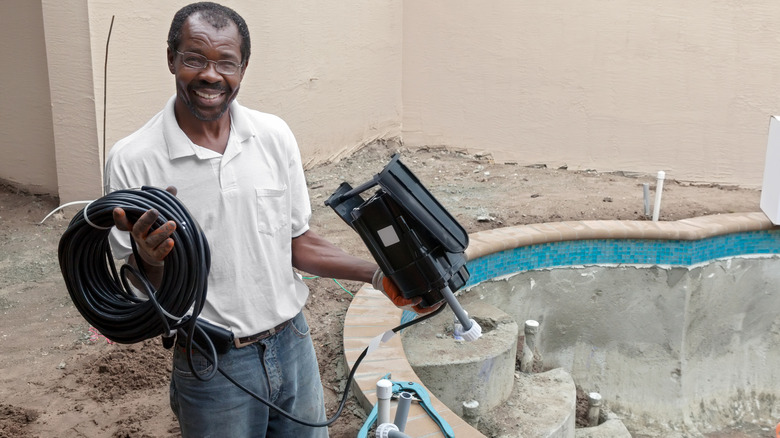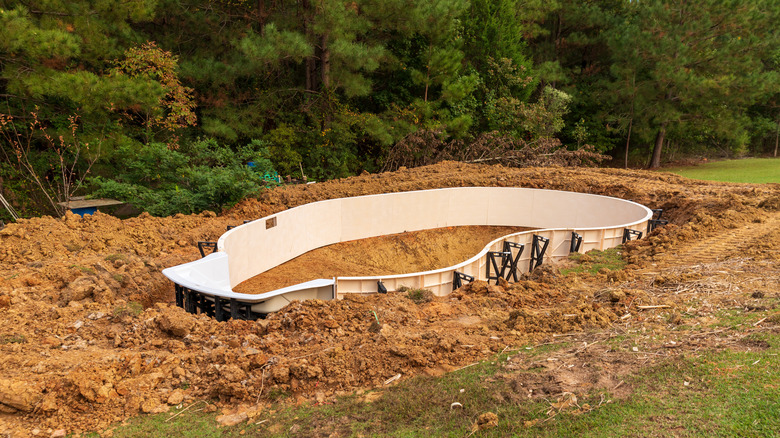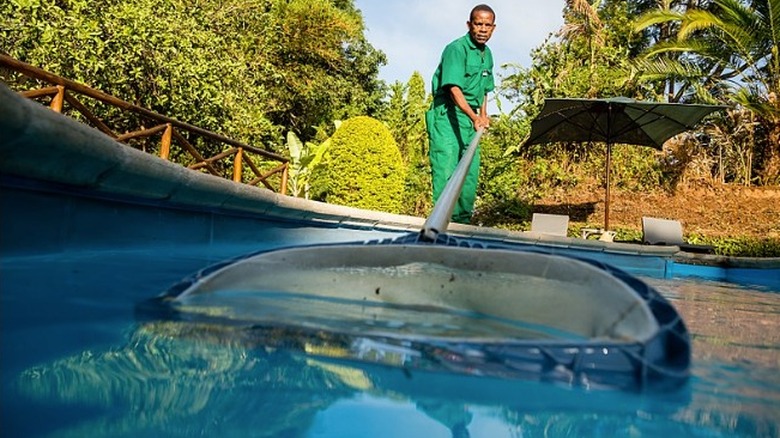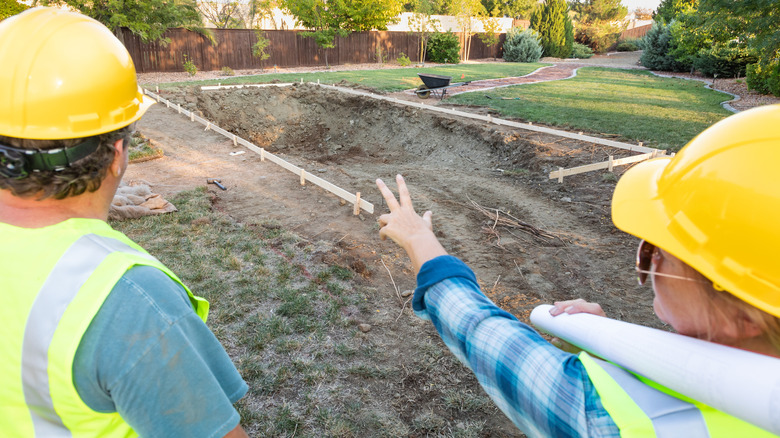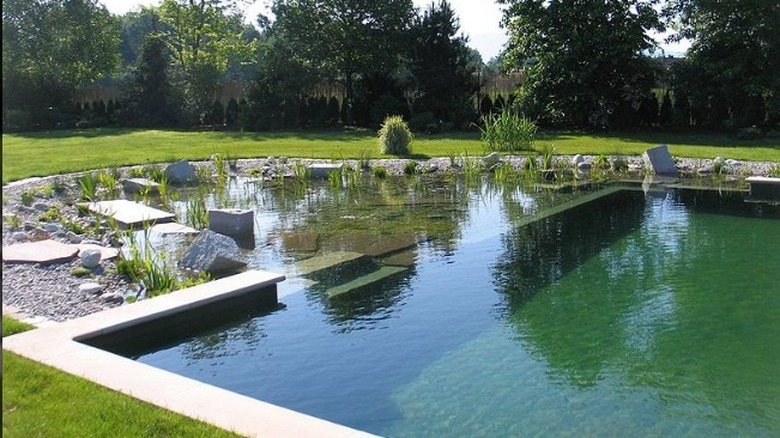Natural Pools: What To Know Before You Buy
When it comes to constructing a pool for your home, you have three options: traditional chlorine pools, saltwater pools, or the much recent rage, natural pools. While we've covered salt water and chlorine pools in the past, now it's time to learn all about natural pools.
The Spruce said that natural pools are designed to imitate a combination of pools, ponds, and other water bodies. They incorporate things like rocks, boulders, plants, and all the wonders of nature you would come across in a pond. According to Hunker, while the traditional chlorine pools can cause irritation to the eyes, smell horribly like bleach and ruin your favorite swimsuit over time, natural pools do not have all these cons. Little wonder it is fast becoming a favorite.
Perhaps you're now wondering about the benefits and overall value of opting for a natural pool. Is it expensive to build and maintain? What's it do to the property value? Keep reading to learn all about this cool pool.
What exactly are natural pools?
"A natural swimming pool is a chemical-free pool that uses the same principles as nature to filter out harmful microorganisms," said James Robyn of Luxury Pools +Outdoor Living. These pools have two basic areas, the pool where you swim and a regeneration area. It is in that regeneration area that the pool stays clean and safe for swimming and playing. Instead of chemical filters used in the chlorine and saltwater pools, a natural pool is organically filtered by either gravel filters (kind of like a fish tank) or constructed wetlands of plants that imitate a natural process of filtration, according to The Spruce. The regeneration area replenishes the main pool area with clean, organically filtered water continually.
A natural pool does not have the same clear crystal blue water as the chlorine pool; instead, it maintains that natural colorless look typical to lakes and might turn brown after quite a while. But you can be sure that this water does not smell like bleach and does not irritate your eyes or harden your hair, said zo2 Also, this pool is a real treasure if you care about environmental preservation.
The downside to constructing a natural pool is that the regeneration area, over time, turns into a small ecosystem and therefore would require attention, gardening, and regular care, added The Spruce. On the other hand, the main pool area requires very minimum care, not like the chlorine pool that needs weekly cleaning, Eco Outdoor explained.
Pros and cons of natural pools?
Before settling in to build a natural pool, consider why you want to go this route and what the benefits will be for you. Are you getting one because it is in vogue? Or are you ditching the old-school chlorine pool because you care about our planet and you are sensitive to chlorine?
Take a look at some of the pros and cons of having a natural pool. According to zo2, a natural pool is less time-consuming to maintain and less financially demanding. The pumps are smaller, so the energy bills tend to be lesser compared to other types of pools. Also, when you consider the absence of chlorine and pipe erosion, this type of pool is 100% completely environmentally friendly.
On the flip side, one disadvantage of the natural pool is that it tends to become a breeding ground for algae, according to Luxury Pools +Outdoor Living. You can grow aquatic plants that make it hard for algae to thrive or even use things like pool vacuums to help keep things cleaner.
Also, while the Natural pool tends to have lesser maintenance costs, you should not overlook the fact that the initial installation costs quite a lot more than other types of pools, according to The Spruce. You are building both a pool and a regeneration center, so there's more than just your basic pool installation.
Who is a natural pool best suited for?
Natural pools offer you the bliss of nature, customized and flexible designs, health benefits, and more, but they still may not be for everyone. First, consider the resale value of your home with the addition of this type of pool. House Beautiful pegged the regular natural pool at costing anywhere between $5000 to $10,000 and the custom-made ones from $37,000 (if made with vinyl) and $60,000 (if you opt for a concrete version). According to Ramsey, your home value will only increase by about 7%.
Your local climate is another thing to consider when it comes to determining if a natural pool is suitable for your home. Depending on where you live, you may only get three months of the swimming season. If you're in a warmer climate that does have chilly winters, your natural pool may flourish all year. Of course, with the proper filtration ecosystem, House Beautiful said you could keep up this pool in all sorts of climates. Also, Total Habitat suggested that bacteria can be added into the water to maintain the pool organically.
Natural pools vs. traditional pools
As previously mentioned, there are alternatives to a natural pool, including the saltwater pool and the traditional chlorine pool.
In terms of finances, the chlorine pool costs way less than both the saltwater pool and the natural pool at installation. However, when you take into account the cost for maintenance, the saltwater pool and natural pool both beat the traditional pool hands down. Reflections claimed that the average price for a chlorine pool is $50,000, while the other two cost about $70,000 minimum.
According to California Home, the Chlorine pool gets filtered continuously through its chlorine, and the natural pool gets its filtering through the regeneration system, but the saltwater pool requires special filtering that is not continual.
Then, when you consider the effects on your skin and the environment, among other things, the saltwater and natural pool emerge as winners. According to Reflections, the chlorine pool is less environmentally friendly than the saltwater and natural pool, which do not use chemical filters.
Natural pools installation and maintenance costs
Swimming pool construction is typically measured per square foot, with the average size of a pool being 20 x 30 feet, according to Home Stratosphere. Pool Research wrote that the average cost per square foot is $100 for natural pools, so an average size pool would range from $55,000 to $70,000. Also, dimensions may differ as well as design, and these things would definitely affect the total cost.
Landscaping and other design concepts will increase the cost of your pool. For example, if you decide you like the aesthetic of a concrete bottom, you'll be spending an extra $5 to $75 per square foot. On the other hand, gravel costs just $2 per square foot, and bentonite clay costs less than a dollar, according to Pool Research. For added plants and wildlife, you can get lilypads at $10 each, or go with something like zooplankton and Koi fish that help to protect against algae, according to Nualgi Ponds.
Finally, the equipment costs for a natural pool do not extend the overall expense that much; all you may need is a water heater for the cold days. The heater would cost about $200, with an added cost of about $300 a year in energy, via Pool Research. It takes about two to three months to complete the construction of a natural pool, and if you would be paying the average of $20 per hour, you should budget $40,000 for the entire job done.
What to look for when hiring pool construction
The next step, after deciding to get a natural pool, is finding the right contractor for the job. You want someone who will do a great job the first time around, rather than needing reconstruction work later. Here is a list of things to look out for when hiring a pool construction company.
Always get customer references, rather than just going by online reviews and ratings. Many companies have employees and friends who create false "good" reviews to bump out the bad ones. Splash Pools recommended that you ask the contractor about their previous business year, including the projects they did, and ask for a customer reference from that list. Compare the amount of work they did with the number of references they share. Ensure the construction company has the legal permit to operate in your area and even ask to see it.
Finally, confirm that they have a warranty covering at least a year. Splash Pools added that this helps to ensure that you are not paying for repairs that occurred as a result of poor construction or company negligence.
How to maintain a natural pool
Now that you have decided to install a natural pool, you'll want to know how to maintain your pool. First, be sure to ask your construction people to install a pool cover. Clear Water Revival suggested that a pool cover will retain heat and keep debris out of the water. Of course, you also want to net out any debris regularly.
Also, you want to prevent algae growth in the pool, as this could hamper pool water quality and cause infection to swimmers. To this end, Aquigarden recommended a pool size of 45 square feet, while Pool Research said you should introduce a couple of life forms like white lilies and koi fish to the pool.
Another great maintenance tip would be to install a water heater. If you live in climates where it is cold many months of the year, you definitely do not want to spend about $70,000 on a pool you can only enjoy in the summer. Besides, BioNova explained that a water heater is needed for a natural pool to maintain accommodating temperatures and to put bacteria growth at bay.
Finally, you should check the regeneration area of your natural pool once a week. According to zo2, it requires the same level of care you would give to a garden, including the pruning of plants, clearing of bacteria, and curtailing of algae growth.
Three natural pool experts handpicked
When it comes to picking an expert in natural pools, here are three great companies worth looking into.
BioNova specializes in creating natural swimming pools. They have tons of positive client reviews to show for their expertise and years in service. BioNova also offers a step-by-step consultation, a free ebook, and a breathtaking portfolio, all tailored to deliver a unique user experience. They also have affiliations with other natural swimming pool construction companies, like California Natural Pools.
Symphony Pools is a concept-to-creation swimming pool builder with over 40 years of experience. They are proud and award-winning members of the Elite Master Pools Guild, a global network that brings together the world's finest swimming pool contractors. Reviewers have said that this company gives great attention to detail and customer care.
Platinum Pools has a ton of reviews on Houzz. This is because they provide not only pool installation but also pool design services, landscape design, and even pool maintenance. Platinum Pool was also inducted into the prestigious Aqua Magazine Hall of Fame in 2010.
Debunking natural pool myths
The first common myth is that "Natural Pools cannot be heated," which is not true. According to Clear Water Revival," a filtration technology allows pools to be covered and heated up to about 32 degrees. The addition of a solar slatted cover can increase solar gain and minimize evaporation to lower heating bills."
The next common myth is that natural pools require a lot of space and cannot be built in small spaces like small gardens and indoors. Some construction companies implement state-of-the-art technologies to build indoor swimming pools and make the most of small gardens. Clear Water Revival is an example of such a construction company.
And finally, some folks believe that natural pools are DIY constructions because they must be easier to build with all that natural stuff. AQUA Magazine pointed out that natural swimming pools have to be built with a building permit and in compliance with swimming pool codes, and the construction work itself isn't easy.
